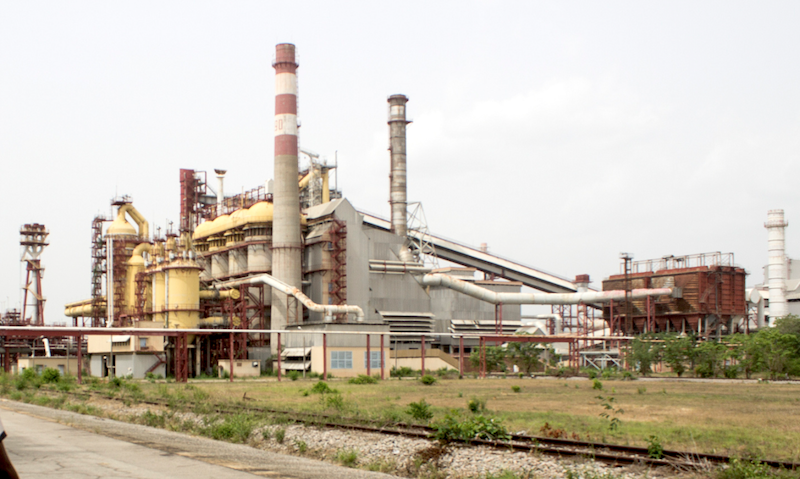Chairman of Senate Committee on Steel Development, Patrick Ndubueze, has disclosed that the moribund Ajaokuta Steel Company was at times indebted to the tune of ₦2 billion in electricity payments, despite not producing.
Sen. Ndubueze stated this at the maiden edition of the National Steel Summit with the theme “Rebuilding and Consolidating Nigeria’s Steel Industry: Collaborative Action for Sustainable Growth and Global Competitiveness” on Wednesday in Abuja.
“Once in Ajaokuta I cried for my beloved country. Ajaokuta can produce brake parts, ball bearings, seals, engine blocks and other parts. It is in some time indebted to the tune of over 2 billion in electricity payments, yet not producing, ” he decried.
According to him, Ajaokuta is a limited liability company, unfortunately the shattered power of Ajaokuta till date is N500, 000 for trillions of naira investment.
He said there should be corporate governance in Ajaokuta and a review of its status.
He urged the delegates at the summit to ensure that it becomes a defining moment in Nigeria’s national resolve to harness the full potential of its steel industry.
Ndubueze added that the deliberations should position Nigeria as a hub for industrial activities in Africa.
He assured of the Senate’s commitment to work with the executive and all stakeholders to deliver a vibrant, sustainable, and competitive steel industry.
In his remarks, the Minister of Steel Development, Mr Shuiabu Audu said that though Nigeria was well endowed with steel making raw materials, it was yet to fully exploit its potential for industrial development.
Audu said that this was due to the absence of operational integrated Steel Plants as off takers.
He said that the Federal Government conceptualised the idea of establishing an Iron and Steel Industry in Nigeria as far back as 1958.
He explained that initially, the interest was in the establishment of Rolling Mills.
Audu said that however, with the growing awareness of the existence of relevant raw materials deposits like iron ore, limestone, coal in the country, emphasis was later shifted to the establishment of integrated Steel Plants.
According to him, the privatisation policy of the government in early 2000 led to the sale of the inland rolling mills at Oshogbo, Katsina and Jos, Delta Steel Company and Aluminum Smelter Company of Nigeria.
“I must add that none are in operation as at date. This privatisation policy changed the role of government from operator to regulator cum administrator of the industry, ” he said.
He said in spite of the ugly history of Steel Development in Nigeria in the past four and half decades, the President Bola Ahmed Tinubu’s administration has shown willingness to address the protracted challenges facing the industry.
Audu described the steel sector as the critical backbone of an industrialised value chain.
He said that this was due to it as the essential base material for significant sectors such as construction, automobiles, electronics, shipbuilding, military equipment, and telecommunications.
He emphasised that iron and steel production would generate employment opportunities and provide capacity for self-sustaining growth, alongside offering a unique opportunity to facilitate a diversified economic base for any nation.
The minister said that the objective of the summit was to appraise the current status of the industry, explore investment opportunities, identify policy and infrastructure gaps, and provide recommendations.
He added that the summit was aimed at deepening collaborative partnerships, knowledge exchange between industry players and policy makers, and inclusive dialogue to forge a common realistic direction for a sustainable Nigerian steel industry.


